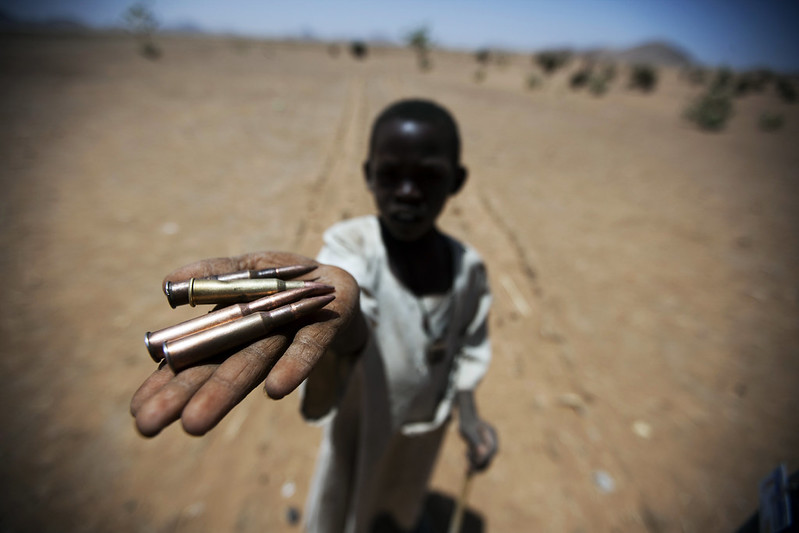
Harun Nasrullah
A landmark Sky News investigation has secured testimony from a Rapid Support Forces (RSF) intelligence officer that confirms the United Arab Emirates as the militia’s primary backer, providing tangible evidence for long-standing international accusations that this foreign support is fuelling Sudan’s catastrophic war and humanitarian crisis.
The RSF, a tribal militia turned paramilitary force, has gained notoriety for committing—and even documenting—widespread war crimes. Since the conflict’s outbreak in April 2023, videos have surfaced showing its fighters perpetrating lynchings and mass assaults.
According to the report, aired on September 23, the scale and endurance of these brutal operations are directly linked to sophisticated foreign support.
This claim is now corroborated by a source from within. Ahmed, an RSF intelligence officer now living as a refugee in a neighbouring country, confirmed the militia’s foreign backing has evolved.
He stated that while Russia’s Wagner Group was an initial supporter, the UAE has become the RSF’s principal patron. Ahmed framed the relationship as a transactional alliance, explaining that because the RSF controls vast gold mines in Darfur and the UAE is a global gold trading hub, the partnership is a natural fit.
This alliance is not new. As far back as 2019, the anti-corruption group Global Witness reported that gold smuggling networks were directly financing the RSF, with associates of leader Mohamed “Hemedti” Hamdan Dagalo using a UAE-based front company to channel millions to the militia.
The report details how the RSF sustains its operations via sophisticated supply chains originating in the UAE, which transit through Chad before delivering weapons into Darfur. According to Joint Task Force commander Idris Ali, flights from the UAE land at Amdjarras airport in Chad, where cargo is transferred to overland convoys. Video evidence obtained by Sky News shows trucks moving under cover of darkness and convoys of Land Cruisers, later converted into armed “technicals” and painted in RSF colours.
A senior Chadian military officer further corroborated mass arms smuggling via the Adré border crossing. The supply lines are meticulously documented, running south from Tine and from Chad’s Amdjarras airport to the key RSF base in Zurug.
The evidence of an airbridge is overwhelming: 86 UAE-to-Amdjarras flights were documented by December 2024, followed by Sudanese government claims of 248 UAE-chartered weapons flights between November 2024 and February 2025. Online flight trackers continue to observe this activity.
This logistical pipeline explains the RSF’s use of advanced weaponry like GB50A guided bombs and AH-4 howitzers. Amnesty International asserts these weapons were “almost certainly re-exported by the UAE,” in a clear violation of the long-standing UN Darfur arms embargo.
This foreign-backed force is now accused of genocide and is currently besieging Al Fashir, where close to a million civilians are trapped, facing starvation, drone strikes, and relentless shelling.
The fallout from the conflict has also generated political controversy in the UK. The government’s perceived leniency was highlighted when two RSF members, accused of atrocities, were initially invited to a discussion panel at the Labour Party’s annual conference. Although cancelled after media enquiries, the event’s initial scheduling prompted human rights groups to warn it risked “whitewashing atrocities.”
More significantly, UK government policy itself is under fire. In a letter to the Foreign Secretary, Sudanese citizens and international observers accused the UK of “political complicity,” arguing that its consistent failure to explicitly name and condemn the RSF provides the group with diplomatic cover.
In response to the allegations, the UAE’s Foreign Ministry categorically rejected the findings, stating it “categorically reject[s] any claims of providing any form of support to either warring party.”
This political storm unfolds against the backdrop of the world’s worst displacement crisis. Since April 2023, over 12 million people have been displaced and nearly 25 million require urgent humanitarian aid.
Addressing the UN General Assembly, Prime Minister Kamil Idris highlighted the staggering toll: 150,000 deaths, the use of foreign mercenaries, and the urgent need to lift the siege of Al Fashir, appealing for immediate global action to end the suffering.
Photo credit: Albert Gonzalez Farran/UN Photo